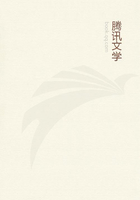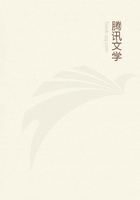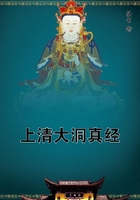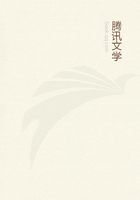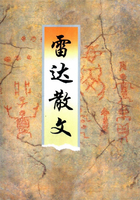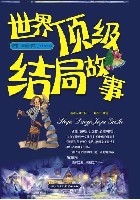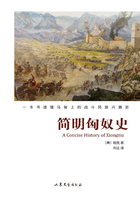BOOK I.Analytic of the Beautiful.
FIRST MOMENT.Of the Judgement of Taste:
Moment of Quality.
The definition of taste here relied upon is that it is the faculty of estimating the beautiful.But the discovery of what is required for calling an object beautiful must be reserved for the analysis of judgements of taste.In my search for the moments to which attention is paid by this judgement in its reflection, I have followed the guidance of the logical functions of judging (for a judgement of taste always involves a reference to understanding).I have brought the moment of quality first under review, because this is what the aesthetic judgement on the beautiful looks to in the first instance.
SS 1.The judgement of taste is aesthetic.
If we wish to discern whether anything is beautiful or not, we do not refer the representation of it to the object by means of understanding with a view to cognition, but by means of the imagination (acting perhaps in conjunction with understanding) we refer the representation to the subject and its feeling of pleasure or displeasure.The judgement of taste, therefore, is not a cognitive judgement, and so not logical, but is aesthetic-which means that it is one whose determining ground cannot be other than subjective.Every reference of representations is capable of being objective, even that of sensations (in which case it signifies the real in an empirical representation).The one exception to this is the feeling of pleasure or displeasure.This denotes nothing in the object, but is a feeling which the subject has of itself and of the manner in which it is affected by the representation.
To apprehend a regular and appropriate building with one's cognitive faculties, be the mode of representation clear or confused, is quite a different thing from being conscious of this representation with an accompanying sensation of delight.Here the representation is referred wholly to the subject, and what is more to its feeling of life-under the name of the feeling of pleasure or displeasure-and this forms the basis of a quite separate faculty of discriminating and estimating, that contributes nothing to knowledge.All it does is to compare the given representation in the subject with the entire faculty of representations of which the mind is conscious in the feeling of its state.Given representations in a judgement may be empirical, and so aesthetic; but the judgement which is pronounced by their means is logical, provided it refers them to the object.
Conversely, be the given representations even rational, but referred in a judgement solely to the subject (to its feeling), they are always to that extent aesthetic.
SS 2.The delight which determines the judgement of taste is independent of all interest.
The delight which we connect with the representation of the real existence of an object is called interest.Such a delight, therefore, always involves a reference to the faculty of desire, either as its determining ground, or else as necessarily implicated with its determining ground.Now, where the question is whether something is beautiful, we do not want to know, whether we, or any one else, are, or even could be, concerned in the real existence of the thing, but rather what estimate we form of it on mere contemplation (intuition or reflection).If any one asks me whether I consider that the palace I see before me is beautiful, I may, perhaps, reply that I do not care for things of that sort that are merely made to be gaped at.Or I may reply in the same strain as that Iroquois sachem who said that nothing in Paris pleased him better than the eating-houses.I may even go a step further and inveigh with the vigour of a Rousseau against the vigour of a great against the vanity of the of the people on such superfluous things.Or, in fine, Imay quite easily persuade myself that if I found myself on an uninhabited island, without hope of ever again coming among men, and could conjure such a palace into existence by a mere wish, I should still not trouble to do so, so long as I had a hut there that was comfortable enough for me.All this may be admitted and approved; only it is not the point now at issue.All one wants to know is whether the mere representation of the object is to my liking, no matter how indifferent I may be to the real existence of the object of this representation.It is quite plain that in order to say that the object is beautiful, and to show that I have taste, everything turns on the meaning which I can give to this representation, and not on any factor which makes me dependent on the real existence of the object.Every one must allow that a judgement on the beautiful which is tinged with the slightest interest, is very partial and not a pure judgement of taste.One must not be in the least prepossessed in favour of the real existence of the thing, but must preserve complete indifference in this respect, in order to play the part of judge in matters of taste.
This proposition, which is of the utmost importance, cannot be better explained than by contrasting the pure disinterested delight which appears in the judgement of taste with that allied to an interest-especially if we can also assure ourselves that there are no other kinds of interest beyond those presently to be mentioned.
A judgement upon an object of our delight may be wholly disinterested but withal very interesting, i.e., it relies on no interest, but it produces one.Of this kind are all pure moral judgements.But, of themselves judgements of taste do not even set up any interest whatsoever.Only in society is it interesting to have taste-a point which will be explained in the sequel.
SS 3.Delight in the agreeable is coupled with interest.
That is agreeable which the senses find pleasing in sensation.

